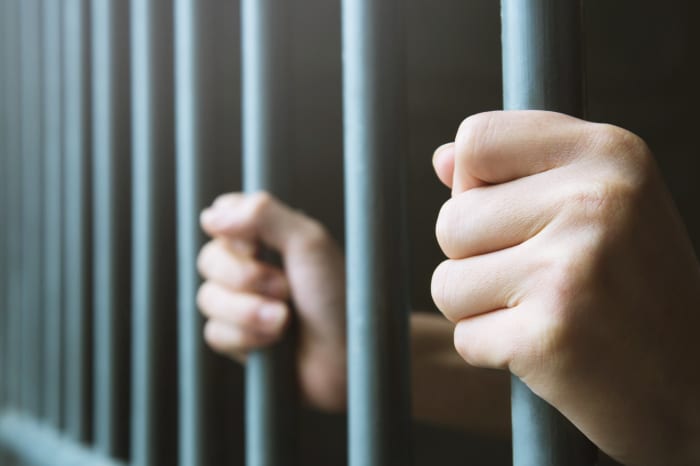This post was originally published on this site
Since the outbreak of the COVID-19 pandemic nearly two years ago, the U.S. government has doled out nearly $3.5 trillion in relief aid. Of that, the Secret Service estimates around $100 billion of it was fraudulently obtained by bad actors all over the country.
In the past year, prosecutors have opened hundreds of fraud cases as the government seeks to claw back some of the ill-gotten gains. The culprits have been accused of using the money to buy everything from fancy watches, luxury automobiles and tony real estate.
Last May, the Department of Justice announced that the Attorney General established the COVID-19 Fraud Enforcement Task Force to harness the resources of the Department of Justice and other agencies across the U.S. government “to enhance efforts to combat and prevent pandemic-related fraud.”
Here are five of the most egregious frauds since the pandemic began:
1. Buying a fleet of luxury cars with $17 million in fake PPP

(Kevork Djansezian/Getty Images
Dinesh Sah, 55, of Coppell, Texas, pleaded guilty in March to fraudulently obtaining $17 million in Payroll Protection Program loans. Prosecutors say Sah took the money to buy a “fleet of luxury cars,” including a Corvette Stingray, a Porsche Macan and a Bentley convertible that cost nearly $250,000.
Sah also used the cash to purchase multiple homes in Texas and pay off mortgages on several others in California. At the time of his guilty plea, the government said it had managed to recover $7.2 million. Sah was sentenced to 11 years and three months in prison and is appealing.
2. One man faked his own suicide after filing for $550,000 in aid
The very first person arrested for trying to collect COVID-19 relief money they weren’t entitled to was David Staveley of Andover, Massachusetts. He was busted in May 2020 after filing for $550,000 in relief aid in his brother’s name.
Within weeks, however, he staged his own death, leaving a suicide note in his car parked by the ocean, and then went on the lam for weeks. He was eventually caught by the U.S. Marshals in Georgia and was later sentenced to five years in prison.
“Many of his family members and associates were left with the belief that Staveley had indeed killed himself, though the ones who knew him best informed law enforcement that they suspected this to be yet another scheme orchestrated by the defendant,” prosecutors wrote in their sentencing memo.
3. Prosecutors say this man used PPP to buy a Lamborghini
At the end of December, Valesky Barosy, 27, of Fort Lauderdale, Fla., was arrested for allegedly pocketing $2.1 million in PPP loans he didn’t deserve. Prosecutors say he used the cash to buy a $225,000 Lamborghini Huracán EVO, Rolex and Hublot watches, and designer clothing from Louis Vuitton, Gucci, and Chanel. His attorney didn’t return a call seeking comment.
“The indictment charges Barosy with five counts of wire fraud, three counts of money laundering, and one count of aggravated identity theft. If convicted, Barosy faces up to 132 years in prison,” the Department of Justice said. “A federal district court judge will determine any sentence after considering the U.S. Sentencing Guidelines and other statutory factors.”
4. After serving time for murder, this ex-con claimed $150,000

Kyle McLemore said he had lost his job in March 2020, even though he was incarcerated at the time.
(iStock/Getty Images)
Kyle McLemore was just days out of jail after serving 21 years for murder when he allegedly filed for $150,000 in COVID-19 unemployment benefits and small business loans. Unfortunately, he hadn’t really been working for a while due to being behind bars, and he had no business to speak of. He faces up to 40 years back in the can.
In his unemployment assistance application, prosecutors say McLemore said he had lost his job in March 2020, just as the coronavirus pandemic was beginning to sweep through the U.S. But in March 2020, McLemore was still incarcerated. He ultimately received $14,555 in unemployment benefits before the fraud was discovered. He has pleaded not guilty.
5. An Olympic speed skater allegedly tried to steal $10 million

Allison Bayer won an Olympic medal for speed skating before allegedly stealing $10 million in PPP loans.
(Matthew Stockman/Getty Images)
After winning an Olympic medal for speed skating, Allison Baver’s next act was allegedly to steal $10 million in PPP loans for her entertainment company which she said employed 400 people but which prosecutors say actually employed no one. She is accused of using some of the money to help finance an Elijah Wood movie about serial killer Ted Bundy. She hasn’t returned messages seeking comment.
Federal prosecutors in Utah say Baver, 41, had filed several applications in April 2020 for Paycheck Protection Program loans, claiming her entertainment company had as many as 430 employees and a monthly payroll of over $4 million. Baver won a bronze medal with the 3,000-meter U.S. women’s relay team short track speed skating event at the 2010 Winter Olympic games in Vancouver.




